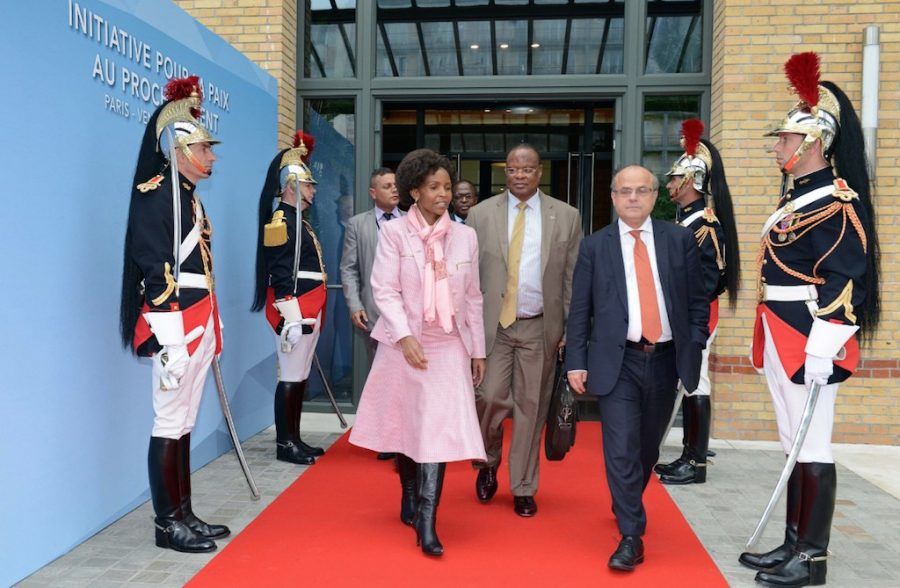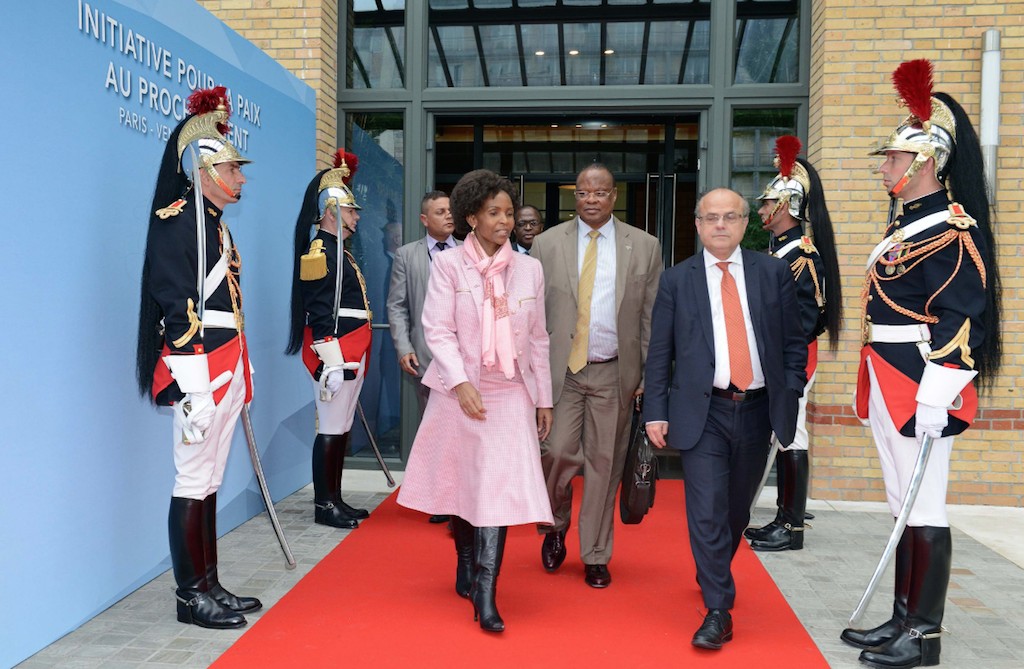
South Africa a Case of ‘Diplomacy Without Diplomats’
Jules Cambon, a former French diplomat, wrote: “Diplomacy will always have ambassadors and ministers; the question is whether it will have diplomats?” Referring to the diplomatic faux pas of International Relations and Cooperation (Dirco) Minister Nkoana-Mashebane when recently interviewed by Al Jazeera, Business Day suggested in an editorial “SA must learn art of diplomacy”. This […]

Jules Cambon, a former French diplomat, wrote: “Diplomacy will always have ambassadors and ministers; the question is whether it will have diplomats?”
Referring to the diplomatic faux pas of International Relations and Cooperation (Dirco) Minister Nkoana-Mashebane when recently interviewed by Al Jazeera, Business Day suggested in an editorial “SA must learn art of diplomacy”. This injunction was driven home further by Dirco’s undiplomatic over-reaction to a well-intended US terror alert.
So, to paraphrase Cambon: a case of diplomacy without diplomats?

The fact that our diplomacy needed improvement was particularly emphasised in Chapter seven of the National Development Plan (NDP) pages 253-256 (but apparently expunged from follow-up versions on the Internet). It warned that “SA’s foreign relations are becoming … ineffective and the country is sliding down the scale of global competitiveness and overall moral standing”.
This conclusion has been confirmed successively by credible international indicators. For instance, the African Development Bank and the Organisation for Economic Co-operation and Development ranked SA in their economic outlook a miserable 48th out of 52 countries. The imminence of junk status drives this point further home. Also, SA is slipping further down the pecking order in Africa where it now ranks third after Nigeria and Egypt.
As foreign policy is not a domestic ‘bread-and-butter’ issue, diplomacy is mostly conducted free of democratic scrutiny in the public domain. This enables diplomats to operate mostly unhindered, ensconced in what seems to be a comfort zone. However, when performances, like mentioned above, result in critical headlines, they evoke public concern about the quality and efficacy of our diplomatic effort costing taxpayers R3.2bn per year.
After becoming a democracy in 1994, the country was perfectly placed to becoming a winning nation, at home and abroad. No doubt, there have been successes, particularly in the multilateral spheres, foreign representation, and promoting African interests. Former president Thabo Mbeki’s efforts to position the country to “punch above its weight’ internationally were particularly commendable. Unfortunately, however, these efforts were not sustained, fading noticeably under the leadership of his successor.
Perhaps the greatest disappointment of SA’s foreign policy is the way in which it squandered and lost the hard-earned international goodwill and moral authority and respect Nelson Mandela gave it. It sided with human rights oppressors in multilateral fora, aiding and abetting dictators like presidents Robert Mugabe and Omar al-Shabir.
In the end, South Africa derived no benefits, strategic or otherwise, from these pursuits, but only the reverse. From being the most powerful state on the African continent, it is slipping down the pecking order.
In its immediate region, the Southern African Development Community (SADEC), the country finds itself increasingly powerless and in the back water. It is no longer the exceptional African country we were at the time of Mandela and Mbeki, no longer being taken seriously as it should as a role player. As stated in a recent Business Day editorial, ‘the bragging rights of being the continent’s largest are now lost’.
Clearly, many of SA’s failures were avoidable, if not self-inflicted: lack of foreign policy leadership, flaws in the government’s holistic international role perception, engaging in wasteful and counter-productive ideological pursuits and inadequate diplomacy.
Lip service is paid to ‘economic diplomacy’ while in practice we see little effect as our economic decline is reaching breaking point; no plausible policy or strategy seems to be in place on how to use our superior power in Africa, particularly in regional context, to influence change for the better; great store is placed on partnership with BRICS (Brazil, Russia, India and China), an expensive and now stuttering organisation, undermining ties with Africa and the West; interpreting our national interests through the prism of a Western-sceptic ideology, adding to our economic woes.
No doubt, most countries in the world want to see a successful new SA, creating the opportunity to do much better towards enhancing the welfare and image of the country. It is here in particular where our diplomacy is failing. Although we have excellent people at Dirco taking care of the routine aspects of foreign representation, administration and protocol.
But in the more crucial areas, welfare creation and strategic advancement, the country needs better qualified specialists in its 122 missions abroad instead of having to rely on the wasteful overabundance of generalists and mediocre political appointees. The appointment of skilled experts from the private sector, if necessary on an ad hoc-basis, seems to be part of a solution?
Prominent in the country’s diplomacy is the discrepancy between reality and aspirations. SA seems to entertain a ‘Potemkin foreign policy’, an exercise of smoke and mirrors. As stated by the NDP: “South African diplomats have great skill in drafting memoranda of understanding, policy statements, and agreements but lose momentum when it comes to implementing… or following up.”
On paper, Dirco’s foreign policy objectives come over as comprehensive, formidable, wall-to-wall. International Relations and Cooperation Minister Maite Nkoana-Mashabane’s last budget speech in parliament, as well as Dirco’s strategy papers, leave the impression that our foreign policy is a veritable tour de force, with all the boxes ticked. As she stated: “Our foreign policy is continuing its upward march, adapting and innovating from frontier to frontier.”
But at a closer look, most of what the minister said are not really congruent with reality or plainly aspirational, a good illustration of Pretoria’s “Potemkin foreign policy”. The important question ‘what are the real achievements’, remains unanswered. Mainly the input side is covered in ministerial speeches and strategy papers. Real achievements, the output side of the foreign policy equation, remain obscure. Indeed, South African citizens are justified to ask: “Where is the beef?”
A most visible discrepancy is that most South Africans continue to languish in poverty and unemployment, junk status is looming, and our economy is in tailspin while the minister waxes about “economic diplomacy”, that “our national interests must be underpinned by domestic imperatives”.
Because of the importance of good diplomacy to our national interests and the huge cost of the effort, South Africans deserve to be much better informed about real achievements. It is, therefore, important that Dirco undertakes serious introspection, also paying particular attention to the recommendations of the NDP about its diplomatic performance.
Gerrit Olivier, a former South African ambassador, is presently with the department of political sciences at the University of Pretoria. His article first appeared in Business Day and is republished here with Olivier’s kind permission.